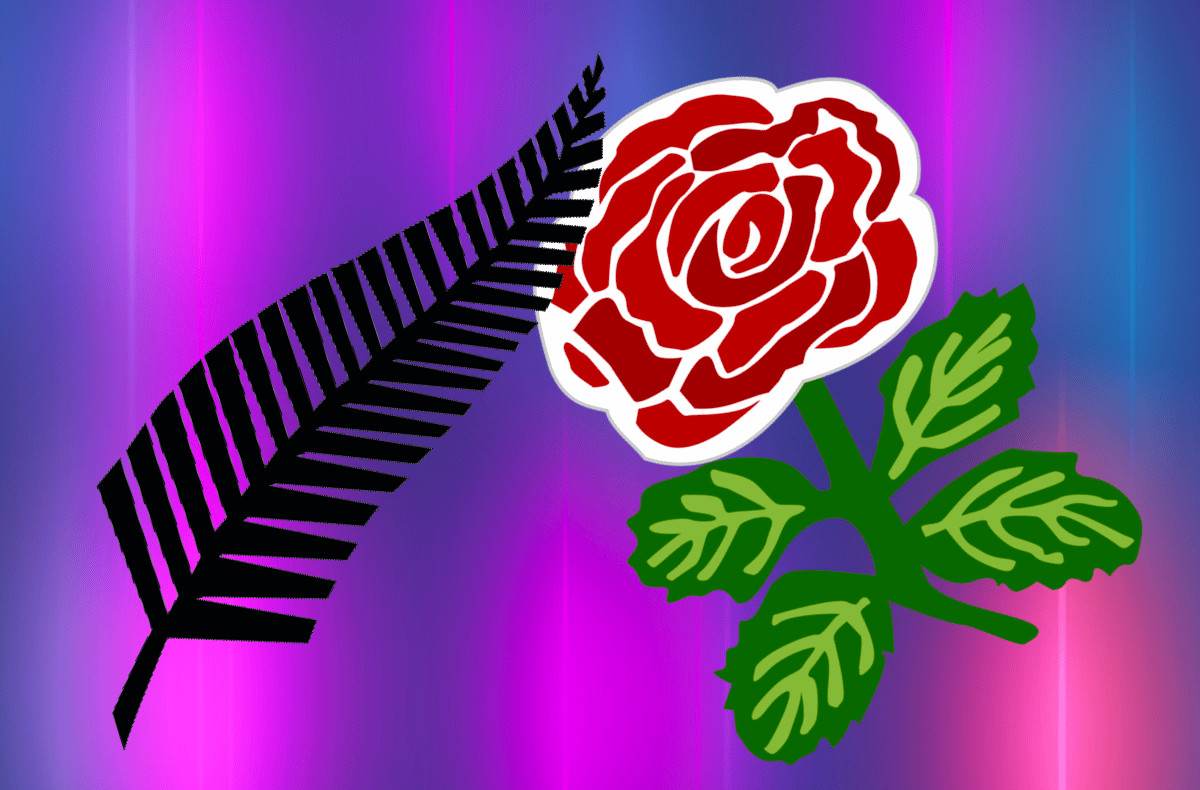
There was that moment when you knew it was true but couldn’t quite believe it. Stood in a densely packed pub in Twickenham, where only seconds earlier fans watched on as just one successful line-out and drive stood between England and one of the most extraordinary performances in Rugby World Cup final history.
But the clock turned red. Abbie Ward and the ball went up—like it has for 30 victorious games on the trot. Only this time it was lost along with the title. A nation of Red Roses fans craned towards the screen and realized it was over. Then the silence. An entire pub produced no cries of dismay, no swearing or yelling. For five minutes. Or maybe it was 30 seconds.
And there, amongst the Kiwi fan-fare and a silent English pub, the camera fell on a young girl at Eden Park, holding aloft a paperback copy of Ruby Tui’s book. That’s the moment you realize this final has transcended all disappointment; its footprint is bigger than this heartbreak, than this moment, bigger even than these two ground-breaking teams.
No matter where fans watched on Saturday morning, they witnessed history. England put on a heroic display of rugby that will echo through the hearts of the next generation. After losing Lydia Thompson to a red card in the 18th minute, the Red Roses held off an elite New Zealand side for over 60 minutes all while being one player down.
It should have been over. But it wasn’t. What ensued demonstrated the power of investment, opportunity, and sheer grit. Two tries were all that bolstered them as Thompson left the field following a shot to Portia Woodman’s head that could not be mitigated. If England were to stay in this race, they would need to draw on every training session and every minute of game time from the last four years.
Having faced criticism from the Kiwi press that their driving maul is “boring” and an example of modern coaching gone too far, this attack was exactly what would allow the Roses to rival their opposition. 63 minutes of tit-for-tat. New Zealand would score, and England would retaliate with the lineout and maul. Their discipline, game management and perseverance to the final minute was astounding.
The Kiwis have excelled through expansive attack in the outside channel during this tournament and England managed to contain that threat in a way that should be impossible with 14 players. Both teams fronted up where people said they were weak. Both teams put their bodies on the line. Both teams showed what is possible when you invest in women’s sports.
England lost the final on Saturday, but women’s rugby won. On the world stage, the Black Ferns and Red Roses have put on a performance to rival any World Cup final—men or women.
In her post-match interview, Ruby Tui defiantly stated: “They said nobody cared about women’s rugby, well guess what? We out here, we’re going nowhere.”
These women carried the weight of their respective nation’s hopes on their shoulders and the burden of showing every person watching what women’s rugby could be. They are women who grew up playing on boys’ teams, who not so long ago worked full-time jobs alongside pursuing the unthinkable, and who have battled twice as hard for half the respect.
If rugby’s governing bodies around the world capitalize on what has been created, we cannot even begin to imagine the future impact of the display put on in this final. The RFU must act now: fund grassroots campaigns for rugby to be on the girl’s curriculum in schools—just as the Lionesses did with football after winning the Euros—and listen to the female athletes who have grown up through the system.
Because every woman sees herself in that young girl clutching Ruby Tui’s book above her head. Whether or not you play sports, we all remember the moment when we saw someone who looked like us do something we didn’t realize was a possibility.
This visibility is essential and has only really come into effect in England in the past five years. I never saw women playing rugby on TV, or their faces plastered across Adidas billboards and social media. The Rugby World Cup 2021 final has hoisted role models like Sarah Bern, Zoe Harrison, Ruby Tui and Stacey Fluhler into the spotlight. It has contributed to a year that will change the landscape of women’s sport forever.
I could now write that had it not been for that red card England would have won. Or that a clear Kiwi knock-on was missed in the 74th minute. But as the smoke clears, history will only remember that the Black Ferns became defending champions on home soil. Yet the legacy created by both teams will be felt forever. The most important takeaway is that the work does not stop here—it starts here.
England will be back; they will go again. And it will be thanks to what the Roses did this weekend that they come back stronger.
As the heart cries for the loss, so too does it sing for the future.